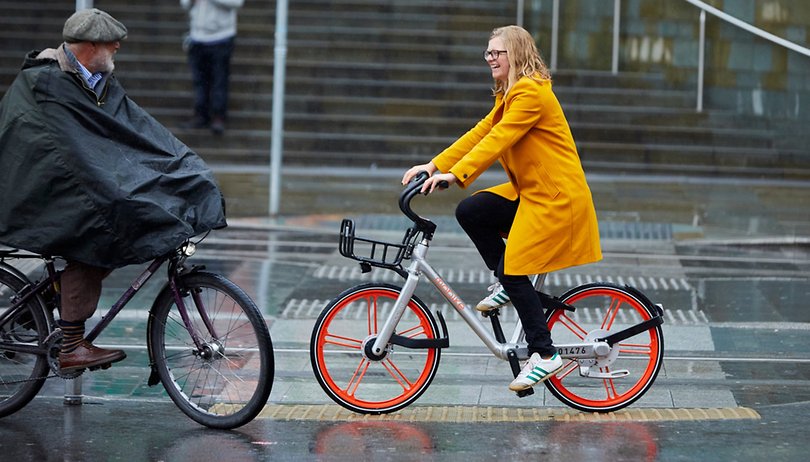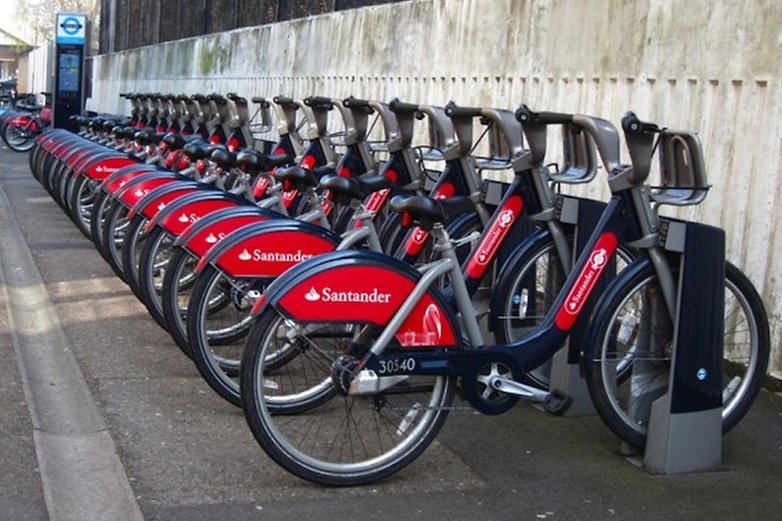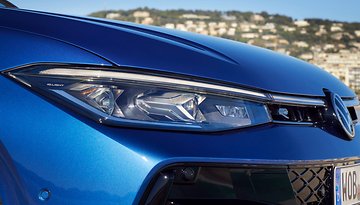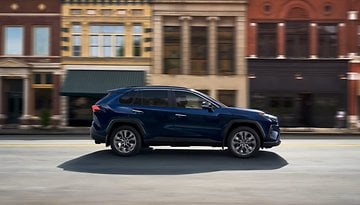Mean or green: is bike sharing good for the environment?


Bicycle sharing schemes are often sold as green transport solutions. Just take a look at the marketing strategy of the growing number of companies competing for market share in this industry. All will say they are good for the environment. But are they?
Bike sharing: the concept and goals
The idea behind bike sharing schemes, often referred to as public bicycle systems, is that by increasing the number of journeys made by each bicycle in a city, we can reduce the total number of bicycles needed. The goal is that fewer bikes will be sitting around in garages, sheds and parked outside office buildings. When a bicycle is stationary it is, by definition of purpose, being wasted, and waste is bad.
Another goal of bicycle sharing projects is that easy and convenient access to bikes will encourage more drivers to switch to pedal power. Fewer car and bus journeys results in lower emissions.
Bike sharing is also often touted as a solution to the last mile problem - a term originally used in supply chain management to identify transportation costs in urban areas - by being used in combination with traditional public transport. In the US especially, where more jobs and people are located in lower-density suburbs, bike sharing provides a way to get from the subway or train station to your office when the distance is not walkable. The same concept can be applied to the journey between your home and the nearest public transport station, sometimes referred to as the first mile problem.
What is necessary to classify a product or service as green?
For a product or service to be classified as “green”, it generally has to fall under one or more of the following labels:
- Is energy efficient and durable, it does not use a lot of power or any burnable fuel
- Is free of toxic compounds and doesn’t produce toxic by-products such as C02
- Is made of recycled materials or from renewable and sustainable sources
- Is biodegradable or easily reused and recycled
To fully understand if bike sharing is green, first, we need to classify what the actual product might just be. The bicycle itself is not the greenest product ever, but the service offered is. In order to answer the question at hand, we need to look at the big picture. The question as to whether each individual bike is green or not is not important, what I am trying to work out is if the wider project, and the bike sharing industry as a whole, benefits our planet in a positive or negative way.
The boom and bust cycle of bike sharing in China
To answer that questions, I looked to China. The country has been an interesting case study in terms of the positive and negative impacts bicycle sharing can have on city infrastructure and the environment. I think it is fair to say that China has been through a cycle of boom and bust already with its bike sharing journey.

After an initial explosion in cities such as Beijing, Wuhan, and Xiamen, things took a horrible turn for the worse. The third biggest bike-sharing company, Bluegogo, went bankrupt. Others followed. What happens when tens of thousands of bicycles that have been dropped onto city streets no longer have an owner or a purpose? See for yourself.
The scenes are pretty gruesome. Can we really call this project green if it has the potential to create as much pollution as this? Shanghai currently has 1.5 million shared bikes on its streets. For comparison, London (albeit with a population of roughly a third of Shanghai) only has 11,000 shared cycles. Is the large figure sustainable? Is the low figure making enough of an impact on carbon emissions? There is clearly a balance to be found here. Oversupply has been a huge issue in China, and must be avoided in the western markets if bicycle sharing is going to convince local authorities that it is green.
The not-so-green side of the operation
There is a common misconception that bicycle sharing schemes are carbon emission-free, but this is not exactly true. Fleets of bicycles need to be maintained. This was one of the major criticisms with docked shared bicycles. Because users were free to cycle whenever they wanted to, and thus dock the rented bike at a location of their choice, the companies behind the schemes had to constantly re-balance the stations to make sure stock was well spread out. This was done by motor vehicles.

In the cities of Minnesota, Washington DC, and Melbourne, the number of petrol miles needed to maintain the fleet were outweighed by those saved by the bike sharing scheme. Dockless bicycles go someway to address the rebalancing issue, but the ecological cost of maintenance still needs to be part of the conversation.
Possible solutions for the oversupply issue
Boom and bust cycles are a product of today’s capitalist economies. The boom part, where expansion is rapid, growth is aggressively pursued and profits are high for investors is the very essence of capitalism itself. The bust part, where everything comes crashing down to the ground when markets become swollen or confidence wavers, is an inevitability. See the dot-com bubble and the subprime mortgage crisis, for example.
So what is the solution? Without getting too political, there is a strong argument for publically owned transport where supply can be controlled and regulated. If, for example, a non-profit organization owned the bikes rather than say, twelve companies from around the world all competing for market share, perhaps the bicycle graveyards could be spared.
The other issue here is about message. Public backlash to bike sharing has been no secret. In Manchester, Mobike, now valued at more than a billion dollars, had to pull due to vandalism and a population that simply did not accept its concept. And from San Francisco to Melbourne, Australia, companies such as Lime and oBikes have been chased out of town. But this story is not over yet.
Bike sharing schemes are not going away anytime soon, and the long-term environmental issues are yet to be truly realized. What do you think? Is bike sharing a sustainable, green transport solution? Let us know in the comments.




















In Toronto, the city-owned Bike Share program recently expanded out to walking distance from us, but to my mind the failure to integrate it with the city transit system is a limiting factor (it's run by the Parking Authority, oddly.) I don't "get it" why a single transit pass can't be used to check out a bike on the same transfer - that would make it a real "last mile" solution not requiring separate fares and accounts. A build-out of segregated transit lines and bike lanes increasingly offers quicker and more efficient ways to get around the urban core, whizzing past cars jammed up sniffing each others behinds until they can be gouged for parking. Transit and bike sharing should be better integrated.
To the note below: Thanks. Toronto is just phasing in a new "Presto" transit card that includes an (optional) credit card link for topping up - that could easily be made a condition of use for bike share, if the services were consolidated. The card has been something of a boondoggle: in Montreal the Bixi bikes are on the Opus transit card system. I'd like to see Toronto's transit administration marched to Montreal annually to have all their noses rubbed on a transit platform.
Totally agree that bike sharing needs to be part of the wider transport network to be a last mile solution. This was touted in London for years (the docked bikes becoming part of TfL's Oyster Card system) but it never happened. The reason given was that the pre-paid travel cards couldn't be charged if the bikes went missing or were damaged, like a credit card or PayPal account could be.